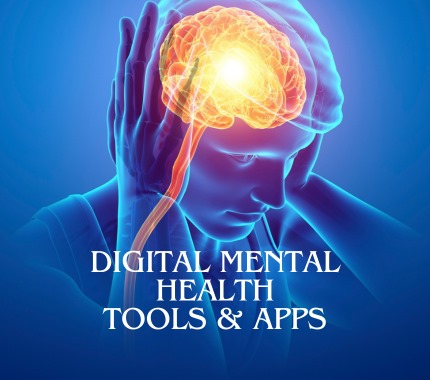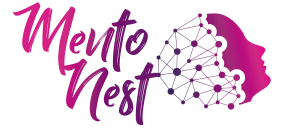Mental Health Tools and Apps
- Description
- Curriculum
- Reviews
“Mental Health Tools and Apps Course” is designed to provide participants with a comprehensive understanding of various digital tools and applications available for supporting mental health and well-being. This course explores the landscape of digital mental health resources, including apps, platforms, and online tools, covering their features, functionalities, and effectiveness. Participants will learn about common challenges associated with using these tools and strategies for overcoming setbacks. Additionally, the course emphasizes the importance of practicing self-compassion, flexibility, and celebrating progress when utilizing digital mental health resources. By the end of the course, participants will have the knowledge and skills to effectively utilize these tools to enhance mental well-being and support others in their mental health journey.
-
1Lesson 1: Introduction to Mental HealthPreview 45 Minutes
· Mental health refers to our emotional, psychological, and social well-being. It affects how we think, feel, and act.
· Mental health challenges can range from common issues like stress and anxiety to more severe conditions such as depression and schizophrenia.
· Factors contributing to mental health include biological factors, life experiences, and family history.
· Stigma surrounding mental health can prevent individuals from seeking help and accessing support.
· It's crucial to prioritize mental health through self-care practices, seeking professional help when needed, and fostering supportive relationships.
-
2Lesson 2: Common Mental Health DisordersPreview 45 MinutesSorry, this lesson is currently locked. You need to complete "Lesson 1: Introduction to Mental Health" before accessing it.
· Anxiety disorders: Characterized by excessive worry, fear, and nervousness. Examples include generalized anxiety disorder (GAD), panic disorder, and social anxiety disorder.
· Mood disorders: Impact mood regulation and include conditions like depression, bipolar disorder, and seasonal affective disorder (SAD).
· Psychotic disorders: Involve distorted thinking and perception, often leading to delusions or hallucinations. Schizophrenia is a notable example.
· Eating disorders: Involves unhealthy attitudes and behaviors related to food and body image, such as anorexia nervosa, bulimia nervosa, and binge-eating disorder.
· Substance use disorders: Involves problematic use of substances like alcohol, drugs, and prescription medications, leading to addiction and impairment in daily functioning.
-
3Lesson 3: Risk Factors and Protective FactorsPreview 45 MinutesSorry, this lesson is currently locked. You need to complete "Lesson 1: Introduction to Mental Health" before accessing it.
· Risk factors: Conditions or situations that increase the likelihood of developing a mental health disorder. These can include genetic predisposition, trauma, chronic stress, and substance abuse.
· Protective factors: Factors that enhance resilience and decrease the risk of developing mental health issues. These can include strong social support, healthy coping mechanisms, access to healthcare, and a stable environment.
· Understanding both risk and protective factors can help individuals and communities implement strategies to prevent mental health problems and promote well-being.
-
4Lesson 4: Seeking Help and SupportPreview 45 MinutesSorry, this lesson is currently locked. You need to complete "Lesson 1: Introduction to Mental Health" before accessing it.
· Recognizing the signs and symptoms of mental health issues is the first step in seeking help.
· There are various avenues for seeking support, including talking to a trusted friend or family member, reaching out to a mental health professional (therapist, counselor, psychiatrist), or contacting a helpline.
· Treatment options may include therapy, medication, lifestyle changes, and support groups.
· It's essential to prioritize self-care and engage in activities that promote mental well-being, such as exercise, mindfulness practices, hobbies, and maintaining a balanced lifestyle.
-
5Practical Assignment: 1 - Creative Expression through ArtAssignmentSorry, this lesson is currently locked. You need to complete "Lesson 1: Introduction to Mental Health" before accessing it.
-
6Lesson 1: Accessibility and ConveniencePreview 45 MinutesThis lesson is locked because you haven't completed the previous one yet. Finish the previous lesson to unlock this one.
In today's fast-paced world, accessibility and convenience are crucial factors in accessing mental health support. This lesson delves into how digital mental health tools and apps have revolutionized the way individuals can seek and receive help, breaking down barriers to access and providing support at the touch of a button.
-
7Lesson 2: Personalization and Tailored SupportPreview 45 MinutesSorry, this lesson is currently locked. You need to complete "Lesson 1: Accessibility and Convenience" before accessing it.
Lesson Overview: In this lesson, we explore how digital mental health tools and apps provide personalized support, catering to the unique needs and preferences of each individual. By leveraging technology such as machine learning and data analytics, these tools offer interventions and resources that are tailored to the user's specific mental health concerns, preferences, and goals.
-
8Lesson 3: Continuous Monitoring and Progress TrackingPreview 45 MinutesSorry, this lesson is currently locked. You need to complete "Lesson 1: Accessibility and Convenience" before accessing it.
Lesson Overview: This lesson focuses on the benefits of continuous monitoring and progress tracking offered by digital mental health tools. By enabling users to track their mental health symptoms, behaviors, and progress over time, these tools provide valuable insights, support self-awareness, and facilitate more effective treatment planning and intervention.
-
9Lesson 4: Cost-effectiveness and AffordabilityPreview 45 MinutesSorry, this lesson is currently locked. You need to complete "Lesson 1: Accessibility and Convenience" before accessing it.
Lesson Overview: In this lesson, we delve into how digital mental health tools provide cost-effective solutions for individuals seeking mental health support compared to traditional therapy. By leveraging technology and scalable platforms, these tools offer affordable alternatives that reduce financial barriers to accessing mental health care.
-
10Practical Assignment: 2 - Personal Reflection JournalAssignmentSorry, this lesson is currently locked. You need to complete "Lesson 1: Accessibility and Convenience" before accessing it.
-
11Lesson 1: Understanding Digital Mental Health ToolsPreview 45 MinutesThis lesson is locked because you haven't completed the previous one yet. Finish the previous lesson to unlock this one.
Overview: In today's digital age, mental health support is increasingly accessible through various digital tools and apps. This lesson serves as an introduction to understanding these tools, examining their purpose, features, and the benefits they offer to users seeking mental health assistance.
-
12Lesson 2: Evaluation Criteria for Digital Mental Health ToolsPreview 45 MinutesSorry, this lesson is currently locked. You need to complete "Lesson 1: Understanding Digital Mental Health Tools" before accessing it.
Overview: This lesson delves into the key criteria used to assess the effectiveness and suitability of digital mental health tools. Understanding these criteria is essential for users to make informed decisions about which tools best align with their needs and preferences.
-
13Lesson 3: Popular Digital Mental Health AppsPreview 45 MinutesSorry, this lesson is currently locked. You need to complete "Lesson 1: Understanding Digital Mental Health Tools" before accessing it.
Overview: This lesson introduces some of the most popular digital mental health apps available in the market, highlighting their unique features and offerings aimed at promoting mental well-being and providing support to users.
-
14Lesson 4: Integrating Digital Mental Health Tools into Daily RoutinePreview 45 minutesSorry, this lesson is currently locked. You need to complete "Lesson 1: Understanding Digital Mental Health Tools" before accessing it.
Overview: This lesson emphasizes the importance of integrating digital mental health tools into daily routines to maximize their effectiveness and benefits. By incorporating these tools seamlessly into daily life, users can establish sustainable habits for mental well-being and self-care.
-
15Practical Assignment: 3 - Digital Mental Health App Review and Awareness CampaignAssignmentSorry, this lesson is currently locked. You need to complete "Lesson 1: Understanding Digital Mental Health Tools" before accessing it.
-
16Lesson 1: Understanding Digital Mental Health ToolsPreview 45 MinutesThis lesson is locked because you haven't completed the previous one yet. Finish the previous lesson to unlock this one.
Lesson Overview: This lesson introduces digital mental health tools, explaining their types, benefits, and considerations for effective usage.
-
17Lesson 2: Maximizing Engagement with Digital Mental Health ToolsPreview 45 MinutesSorry, this lesson is currently locked. You need to complete "Lesson 1: Understanding Digital Mental Health Tools" before accessing it.
Lesson Overview: This lesson focuses on strategies to enhance engagement and adherence when utilizing digital mental health tools.
-
18Lesson 3: Managing Expectations and ChallengesPreview 45 MinutesSorry, this lesson is currently locked. You need to complete "Lesson 1: Understanding Digital Mental Health Tools" before accessing it.
Lesson Overview: This lesson addresses common challenges and strategies for managing expectations when using digital mental health tools.
-
19Lesson 4: Maintaining Long-Term EngagementPreview 45 MinutesSorry, this lesson is currently locked. You need to complete "Lesson 1: Understanding Digital Mental Health Tools" before accessing it.
Lesson Overview: This lesson explores strategies for sustaining long-term engagement and deriving ongoing benefits from digital mental health tools.
-
20Practical Assignment: 4 - Digital Mental Health Tool Adventure QuestAssignmentSorry, this lesson is currently locked. You need to complete "Lesson 1: Understanding Digital Mental Health Tools" before accessing it.








